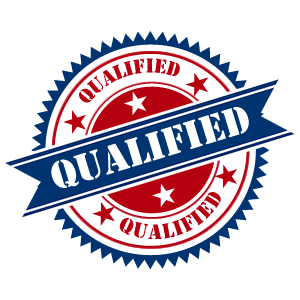Air Conditioner Replacement
Call Us (718) 948-2456
Buying Guide for New Air Conditioners
Many homeowners won’t really think about their air conditioner too much until it stops cooling their home. While proper maintenance can help extend the life of an air conditioner, eventually, it will need to be replaced. Understanding how it works and the different options available can help you choose a new air conditioner if yours needs to be replaced. Beyond looking at your budget, use the information here to choose the new air conditioner for your home and make sure it meets your expectations.
How an Air Conditioner Works
When you adjust the controls on your thermostat, the air conditioner adjusts how it works to cool your home. When the thermostat lets the air conditioner know it needs to turn on, it sends refrigerant through a series of coils that will give off heat. By dissipating this heat, it creates cooler air that is then pumped into your home. A blower inside your air handler or furnace pumps the cooled air throughout the air ducts inside your home. This adjusts the temperature in your home, cooling the entire home. If the thermostat notices that your home is starting to reach optimal temperature, it lets the air conditioner know so it doesn’t work as hard to cool the home. If your home starts to warm up a little bit, the thermostat tells the air conditioner to turn back on and cool your home further. All this works seamlessly to keep your home at a comfortable temperature no matter how hot it gets outside.
How Can We Help You?

The US Department of Energy lists the average lifespan of an air conditioner as around 15 to 20 years. However, there are ways to properly maintain the air conditioner so it lasts longer. Changing the filter regularly, getting tune-ups seasonally, removing debris, and checking the refrigerant insulation to make sure it remains in good shape can help you keep your air conditioner working longer than 20 years. Proper maintenance can enable your air conditioner to last around 25 years before it needs to be replaced. If maintenance hasn’t been done previously and your air conditioner needs to be replaced, make sure you keep an eye on the new one and maintain as needed to extend its lifespan.
Do you really need to replace your air conditioner? There are a number of different signs that your air conditioner isn’t working properly. If it’s having issues and it’s near the end of its life expectancy, it might be a good idea to consider a replacement. It’s better to go ahead and replace it now instead of risk it breaking during the hottest days of summer. Some signs to watch out for include the following.
- Home Isn’t Cooling Properly – One of the biggest signs an air conditioner isn’t working is that the home simply isn’t cool enough. The main issue could be that there are clogs in the system, that there are issues with the ducts, or of other major issues with the air conditioner.
- Higher Energy Bills – Air conditioners run off of electricity. If they need to work harder to cool the home, they’re going to be using more electricity to run, which can lead to a much higher bill. If your bill has gone up drastically, it could be because your air conditioner is struggling to cool your home.
- Odd Noises – Odd noises mean something is not working properly. Your air conditioner may make a small amount of noise when it turns on and is running, but the noise shouldn’t change over time. If your air conditioner suddenly gets louder or starts making other noises, contact a professional for an inspection.
- Moisture Buildup – The moisture created by your air conditioner should not build up. If there is a leak or condensation is building up around the unit, there is something wrong that needs to be fixed. If it’s leaking the refrigerant, it can be a health risk and will need to be repaired fast.
- Unusual Smells – You really shouldn’t smell the air coming from your air conditioner. If the air coming from your air conditioner smells like it’s burning, immediate attention is necessary. Ignoring this could lead to a fire in the air conditioner or damage to parts that are crucial to the function of the air conditioner.
Different types of air conditioners are available. Homeowners will often choose a whole-home or central air conditioner. Heat pumps work in a similar way to the whole-home air conditioner, though they can be reversed in the winter to provide heat for the home.
The latest version is a ductless multi zone air conditioner which allows you full control over every room in the house and provides a is far more energy efficient solution to single zone units.
When an air conditioner has reached its life expectancy, it’s a good idea to save for the purchase of a new one. A new one doesn’t need to be purchased just because the older one is already 20 years old, though some homeowners may prefer to purchase one at this point because of the increase in energy efficiency. At the end of the life expectancy, however, the air conditioner is likely going to require more frequent repairs. These repairs add up quickly, especially when they’re more essential components that need to be repaired. If the air conditioner is requiring frequent repairs or the cost of a repair is more than half the cost of a new air conditioner, buying a new air conditioner is a good option.
Homeowners who need a new air conditioner will want to look into the size, SEER rating, and the energy-saving features of various air conditioners to choose the right one. The size is crucial, as the air conditioner needs to be big enough to keep the home cool without being too large. The SEER rating and energy-saving features have an impact on how cost-effective it is to run the air conditioner and how much is spent on energy bills once the air conditioner is installed.
Choosing the right size air conditioner for a home is not as easy as it would seem. The air conditioner previously used for the home may not have been the right size, so it’s often not as easy as simply checking the size already in use. Additionally, bigger is not always better. While a bigger unit will cool the home faster, it will also cycle on and off faster. This means the air conditioner is more expensive to run, without the homeowner seeing much in benefits, and the internal components can wear out faster.
An air conditioner that is too small is going to struggle to cool the entire home. It may run more often, causing higher energy use and causing the internal components to run out faster. A unit that’s the right size for the home balances the power needed to keep the home cool with the ability to move cool air into the home, making the air conditioner far more cost-effective for the homeowner and enabling them to keep the whole home cool no matter how hot it gets.
Air conditioner sizes are determined by the tons of capacity they can provide. A one-ton unit is typically sufficient for around 600 square feet, with a two-ton unit being sufficient for around 1,200 square feet. However, there are additional factors that go into what size is the right size for a home. Homeowners should have a professional inspect their current air conditioning unit, ductwork, and home to determine the appropriate size air conditioner for the home. This way, the homeowner can be sure they won’t purchase an air conditioner that’s too large or too small.
The US Department of Energy has created an efficiency standard for air conditioners called the Seasonal Energy Efficiency Rating (SEER). This is listed on the yellow label for every air conditioner that is sold. The higher this number is, the more efficient the air conditioner is. This means that it will cost less to run compared to other ones that have a lower rating. Newer air conditioners must meet minimal SEER ratings to be able to be sold. Right now, air conditioners need a SEER of at least 13. Some of the more efficient units will have a rating of 15 to 17. These will cost more initially but can help the homeowner save money in the long run.
Energy-saving features are going to help boost the SEER for an air conditioner. There are a few different ways to save more energy with an air conditioner. A variable-speed blower, for instance, helps to reduce energy consumption, as does an automatic delay fan switch. Larger coils also offer more efficient heat transfer, meaning the air conditioner doesn’t need to work as hard to remove the heat and cool the home. Other energy-saving features can include features like an indicator light that tells you when to change the filter. As the filter gets dirty, the air conditioner needs to work harder to keep the home cool. When you have a light to let you know the filter needs to get changed, you can change it promptly to keep energy costs down.
Homeowners who do need a new air conditioner for their home will need to speak with a professional. Our technicians can review your existing air conditioner as well as your home to let you know what size you need for your home. We will discuss options available to fit within your within their budget. The homeowner can choose the air conditioner they would prefer and schedule a time for the installation. Homeowners should also ask about other services that might be needed at the same time, for instance, if they need to have their ducts repaired, so everything can be done during one appointment.
When the air conditioner is delivered, our trained technician needs to do the installation. They handle all parts of the installation for the homeowner and ensure everything works properly before they leave. If the air conditioner comes with added features, they can explain these features to the homeowner and show them how they work. Homeowners should ask questions about their new unit and the maintenance needed so they can keep up with everything and help the new air conditioner last longer.
If your air conditioner just isn’t keeping your home cool or you’re finding it needs frequent repairs, purchasing a new air conditioner might be a good idea.
Air Conditioning Services

24/7 Emergency Service
We're here to help. Jim Hall HVAC has technicians on call to help when you have an unexpected crisis.

Qualified Technicians
Jim Hall HVAC Technicians are expertly trained in all aspects of heating, cooling, duct-work and air quality systems.

Quick Resolution
Using the latest technology to access your HVAC system helping us solve problems efficiently, saving time & money.
Call Us (718) 948-2456









